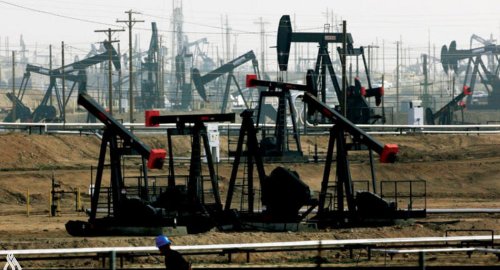
Oil jumps 4% after week-long selloff, but falls for a fourth week

- 18-11-2023, 09:34
INA-sources
Oil prices jumped more than 4% on Friday, rebounding from a four-month low hit in the previous session, as investors who had taken short positions took profits and while U.S. sanctions on some Russian oil shippers lent support.
Brent crude futures settled up $3.19, or about 4.1%, at $80.61 a barrel, while West Texas Intermediate crude (WTI) rose $2.99, or 4.1%, at $75.89.
"You're getting a natural profit-taking rebound and short covering, to a degree," said John Kilduff, partner at Again Capital LLC in New York.
Some of the losses were offset after the U.S. imposed sanctions this week on maritime companies and vessels for shipping Russian oil sold above the Group of Seven's price cap.
Still, both benchmarks ended the week more than 1% lower, their fourth straight weekly decline, mostly weighed down by a rise in U.S. crude inventories and sustained record high production.
China's deepening property crisis and slowing industrial growth also weighed.
"Demand growth from China has been falling short of expectations," said Andrew Lipow, president of Lipow Oil Associates.
U.S. oil producers have been cutting the number of active drilling rigs for nearly a year due to weaker prices. The oil rig count, however, this week rose by six, the most since February, energy services firm Baker Hughes (BKR.O) said.
"When you have a sharp drop in price, the producers think twice about moving ahead with capital spending and projects," said Phil Flynn, an analyst at Price Futures Group.
With Brent below $80, many analysts expect OPEC+, principally Saudi Arabia and Russia, to extend output cuts into 2024.
The OPEC+ group, comprising of the Organization of the Petroleum Exporting Countries and its allies, is set to consider whether to make additional oil supply cuts when the group meets later this month, three sources told Reuters.
"Oil prices are down slightly this year despite demand exceeding our optimistic expectations," Goldman Sachs analysts said in a note.
"Non-core OPEC supply has been much stronger than expected, partly offset by OPEC cuts."
For 2023, the U.S., which makes up two-thirds of non-OPEC+ growth, is forecast to deliver annual gains of 1.4 million barrels per day (bpd), according to the International Energy Agency (IEA).
Meanwhile, inflation in the euro zone appears to be thawing. On Friday, the EU's statistics office confirmed annual inflation slowed sharply.
Source: Reuters
Research identifies the healthiest meal for the heart
- Investigations and reports
- 07:40
Iraq: Five-Year Plan to Attract Foreign Investments
- Economy
- 07:33
Iraq vs Saudi Arabia match kicks off, Arabian Gulf Cup 26
- Sport
- 24/12/28
Real Madrid becomes Arnold's new home
- Sport
- 24/12/28
Globe Soccer Awards 2024: all the nominees
- Sport
- 24/12/27












